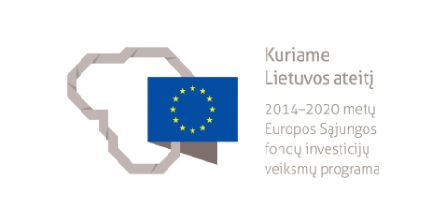Publication ethics
PUBLICATION AND AUTHORSHIP
- Editing and publication of the journal Senoji Lietuvos literatūra / Early Lithuanian Literature follows the established principles of the academic ethics.
- Articles previously published elsewhere are not accepted for publication.
- Plagiarism, i.e. wrong appropriation of somebody else’s text, research methodology, ideas, or results, or presentation of empiric data that has already been introduced into scholarly circulation as new and freshly discovered, or purposeful neglect of proper references is prohibited.
- Publication of articles in the journal is free of charge. Authors are not entitled for any financial remuneration for their contributions. A free copy of a relevant issue is provided to all the contributors upon publication.
- The copyrights for all contributions published in the journal Senoji Lietuvos literatūra / Early Lithuanian Literature belong to the Institute of Lithuanian Literature and Folklore; the authors are granted exclusive right to use their works independently of this collective publication.
- In case of special circumstances causing termination of the journal’s publication, the archive of the former issues is to be preserved and freely available on the Institute’s website.
AUTHOR RESPONSIBILITIES
- Papers submitted for publication must meet the requirements of research publications and follow the editing principles specified in the Information for Authors regarding their structure, references, summary, etc.
- All authors listed on a paper must have made substantive contributions to the research and writing of the paper.
- Authors must make sure that all data cited in the article are, to the best of their knowledge, real, accurate, and authentic.
- Authors must make sure that all sources of financial support for research connected to a paper are acknowledged on publication.
- Authors are required to take into account the reviewers’ comments regarding soundness of their statements and conclusions, the level of analysis, and other motivated reviewers’ opinions, and correct the indicated mistakes.
REVIEWING AND THE REVIEWER RESPONSIBILITIES
- Research articles submitted for publication in Senoji Lietuvos literatūra / Early Lithuanian Literature are reviewed by at least two anonymous reviewers, selected by the Editorial Board from the specialists in the corresponding field. If the reviewers present contrary opinions regarding suitability of the article for publication, the Editorial Board appoints a third reviewer, and after receiving his/ her conclusions, makes the final decision.
- The process of reviewing is double-blind, i.e. the reviewers are not aware of the authors’ identity, and vice versa.
- The reviewers must disclose to the special editor or the Editorial Board any potential conflicts of interest regarding the papers they are asked to referee, including concerns related to funding or their personal objections to the material in question.
- Reviewers must alert the Editorial Board to any similar or related work already published, which is not cited in the paper in question.
- Reviewers should treat papers under review as confidential materials. They must not discuss, distribute, or in any way retain copies of papers reviewed.
EDITORIAL RESPONSIBILITIES
- Editorial Board has final authority to accept or reject a submission. In case of rejection (if there are suspicions of some ethical misconduct having taken place), the author may complain to the Commission of Academic Ethics of the Institute of Lithuanian Literature and Folklore.
- Editors are responsible for recognizing any potential conflict of interest with regard to a submission (including positive or negative knowledge of / relationships with authors or their affiliated institutions and issues regarding funding) and should take appropriate action to ensure that these conflicts do not affect a submission’s acceptance or rejection.
- Editorial Board has to ensure an appropriate level of peer-reviewing and make unbiased decisions with no regard of possible inequity on the part of the reviewers, connected to the author’s gender, sexual orientation, religion, political views and ethnic / geographical background.
- Acceptance of a paper for publication implies confidence in and certainty (to the greatest extent possible) of the validity of the research contained therein.
- If a material error is discovered in a published paper, the Editorial Board has to ensure that a correction, retraction, or apology, as appropriate and feasible, is published promptly.




 Early Lithuanian Literature
Early Lithuanian Literature
